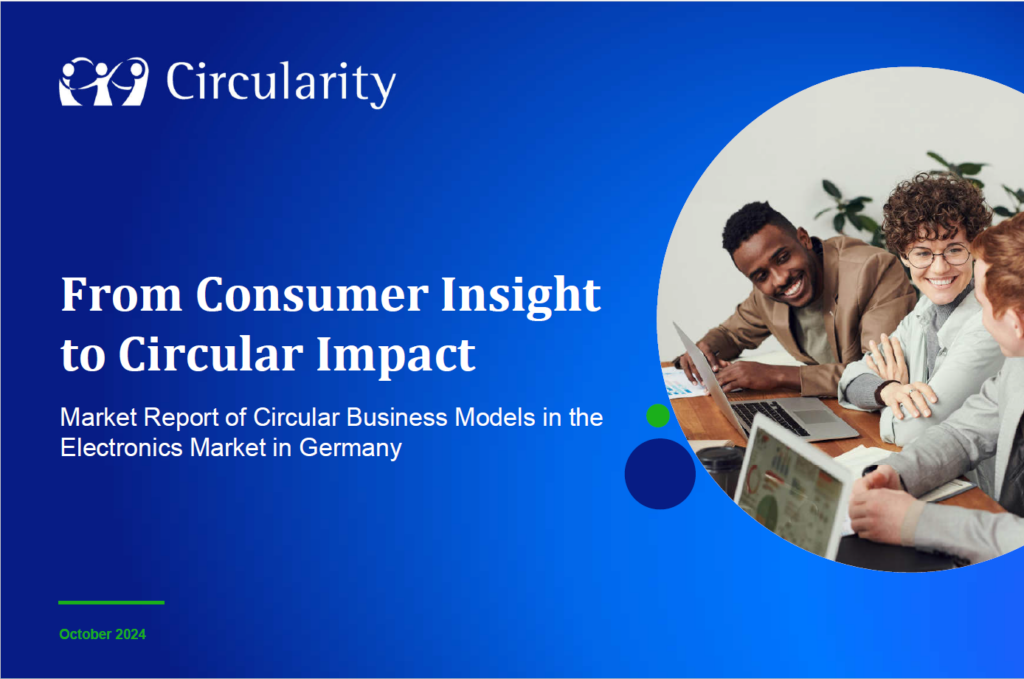Market Report of Circular Business Models in Electronics Market in Germany

Please download the report here.
We presented the key results of our market research and the first UNDRESS report in an online webinar. The replay can be found below:
Circular business models can help increase the productive use of resources in electronics – how users handle devices along the lifespan plays a crucial role
Electronic devices are essential in daily life, but their widespread use has led to environmental challenges. Circular business models—such as second-hand sales and rental services —are key to mitigating these effects by extending the useful life of a product or intensifying the usage. Both of these levers may ultimately generate more value for the users with less physical devices, which may lead to a reduction in the need for new resources. However, the actual impact of such circular offerings hinges on how devices are used in practice, which is not well understood. This report examines B2C (business-to-consumer) and B2B (business-to-business) segments in Germany for smartphones, laptops, cameras, and gaming consoles to identify usage patterns and sustainability effects of circular business models.
In summary, we observe significantly higher adoption rates for rental and second-hand offerings in B2B markets compared to B2C, although consumer intentions in B2C suggest considerable potential for future growth. Further uptake could be achieved by addressing key concerns—such as price, warranty, and flexibility in B2C, and quality, flexibility, price, availability, and data security in B2B. Additionally, increasing the visibility of these offerings would enhance adoption. There are potential rebound effects on consumer behavior, particularly in the B2C market, that require further investigation. However, the findings indicate substantial potential for environmental benefits, such as extending the lifespan of products through second-hand use and recirculating unused business devices.
We will investigate this impact potential in more detail as part of the ongoing work.
UNDRESS Circularity is a collaborative industry project led by Circularity in collaboration with Fraunhofer IZM, Systemiq, and 12 industry partners (Assurant, circulee, Everphone, fixfirst, Foxway, Grover, Ingram Micro, rebuy, Recommerce Group, Reverse Logistics Group, Deutsche Telekom, Vodafone), further supported by Deutsche Bundesstiftung Umwelt and Deloitte. Leveraging data from this market report as well as industry data from the partners and experts, the consortium jointly develops a methodological framework and practical guide to outline the impact of business models on a device’s life span and utilization.
Stay tuned for more results from UNDRESS Circularity in 2025.